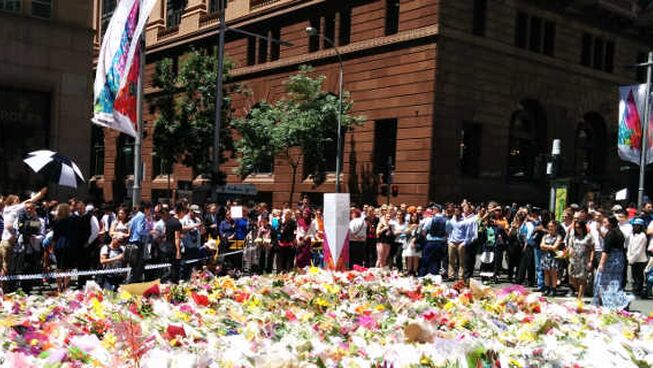Responding to the murder of Stephanie Scott

My attention was grabbed immediately when I heard that Stephanie Scott was missing. I grew up in Griffith which is only a thirty minute drive from Leeton, and stories from that part of the world always catch my interest.
Stephanie Scott was a beautiful, community minded woman full of life and hope for the future. She was brutally murdered, her body doused with petrol, set alight and then dumped in the Cocoparra National Park. All this took place six days before she was due to marry the man of her dreams Aaron Leeson-Woolley, in the quiet country town of Leeton, NSW.
How do you respond to this tragedy and how do you make sense of it?
What I’d like to do in this article is to summarise some of the different ways people responded to Stephanie’s murder then I’d like to share how I responded as a Christian. As you read the responses you might like to think which one resonates most with you.
Response 1. I don’t care. Please don’t spoil my party.
A young uni student I spoke to was brutally honest when he said: “I really don’t care … I try to ignore all the bad news in the world as it’s too depressing.” For him Stephanie’s death was a rude interruption to his enjoyment of life.
Response 2. Create a shrine.
Flowers, photos and messages of sympathy were laid outside the gates of Leeton High School where Stephanie was last know to be alive. Creating a shrine is a common way people cope with death. A shrine is a place close to where the departed person’s spirit is perceived to be. Here people can feel close to the departed and to each other. In our materialistic culture it is a strong indication that people still believe in a spiritual realm of some sort.
Response 3. Create a digital shrine.
The “Rest in Peace Stephanie Scott” Facebook page has over 75,000 likes. This page is a place where people can share what’s on their hearts and minds: their anger, grief, frustrations and positive suggestions about how to commemorate Stephanie’s life. It was started when a woman from Melbourne wanted to express her anger after she overheard two young men in a cafe blaming Stephanie for not taking more precautions. Digital shrines don’t have the same spiritual feel as a physical shrine, but they help people get things off their chest and connect with others who are struggling to cope.
Response 4. We’ve just got to do something.
Many practical and symbolic actions took place after Stephanie’s death was confirmed. A picnic in Leeton on the wedding day, releasing yellow balloons, a hot air balloon festival at Canowindra (where Stephanie grew up), tying yellow ribbons to school room door handles, lighting candles, raising money to pay for the families search expenses, pictures of wedding dresses posted on the internet. People respond to tragedies by wanting to DO something. Some actions may have no practical value but by doing something, doing anything, people don’t feel as powerless and are distracted from the true horror of the situation.
Response 5. Revenge.
The family of the accused murderer are holed up in a motel. This is mainly because their home is a crime scene but it’s also because there have been some online threats vowing revenge. Some online posts are also crying out “bring back the death penalty”.
Response 6. Blame the government.
A Melbourne rally called for tougher sentences on violent crimes.
My response as a Christian
I not saying that the responses above are wrong or inappropriate. I can sympathise with some of them. But I’d like to share how being a Christian helps me to make make sense of this tragic event while giving cause for some optimism.
First of all God has not left himself without testimony in this world. The love in families and communities is more than just an evolutionary survival trick. As people created in God’s image it is consistent for me to see God’s love overflowing into human relationships, especially during times of crisis.
Secondly, as a Christian, I also believe that we live in a fallen, sick world (Genesis 3). Human nature is not improving and I’m not surprised when bad things happen. Each of us has the capacity for evil in our hearts and we need redeeming.
Thirdly, I know that God understands our pain. He is not distant and indifferent to our situation. Jesus claimed to be God in the flesh, living among us. He understands our suffering and suffered much himself at the hands of wicked people.
Finally, the Bible gives me hope for a better future through Jesus resurrection. This hope is not based on wishful thinking like the many platitudes which flow after someone dies. For example when people say “I know they’re in a better place.” This hope in Jesus is based on the historical fact that Jesus rose from the dead and was seen by many. The Bible promises that those who believe in Jesus will likewise rise from the dead to eternal life one day.
It’s at times like this that the Christian message makes the most sense of what is happening and can provide much light in a dark situation.
What answers and hope do have as you respond to the terrible murder of Stephanie Scott?


